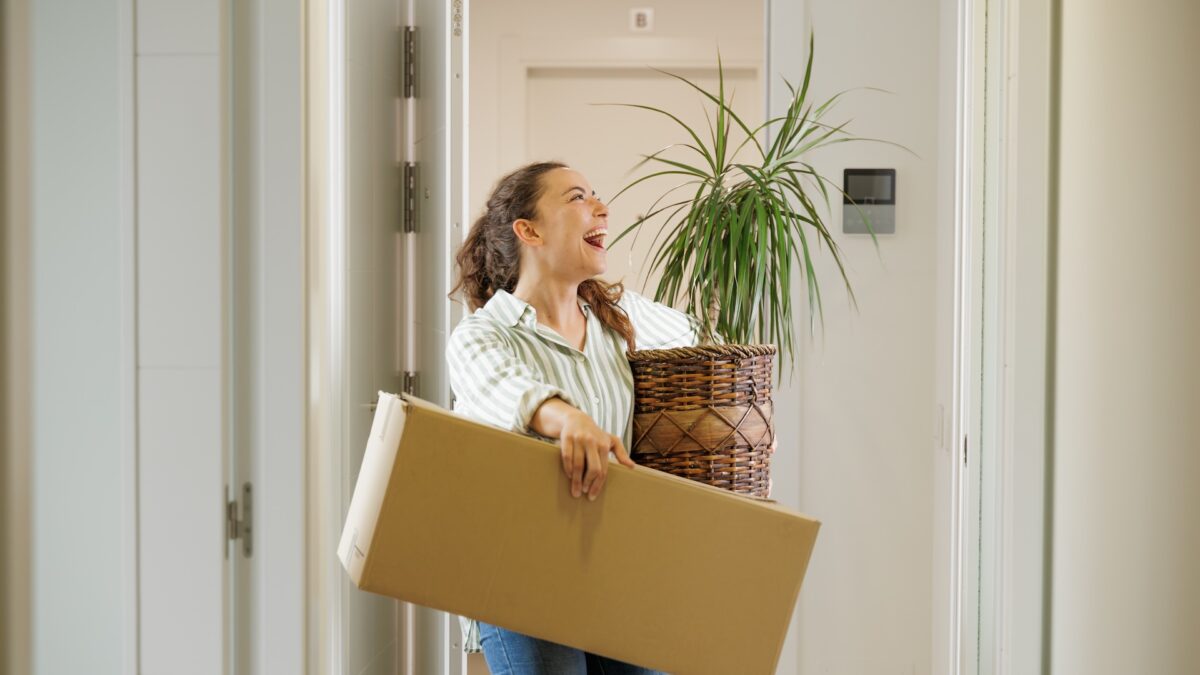Home ownership was once the American dream, but the changing economy and demographics are creating a renting trend. According to Pew Research Center, there were more U.S. households renting in 2017 than at any point in the past five decades.
If you love the idea of living in a home, with perks like a large backyard, more outdoor space, and privacy, renting a house is a good alternative to buying. More people are choosing this option — the Urban Institute says single-family rentals are the fastest-growing segment on the rental market.
As you’re thinking of questions to ask when renting a house, a checklist can help you stay organized and equip you with all the right tips for renting a house the right way.
Determine Your Budget
Many landlords follow the popular rule of thumb that your income should be around three times your rent, says financial adviser Peter Taafe, CRPC, BFA, CFP, with Vista Financial Solutions in Silverdale, Washington. That means for a rental that costs $2,000 a month, you need to earn $6,000 a month, or $72,000 a year.
“There’s another rule of thumb that says living expenses shouldn’t exceed around 25 percent of your salary,” Taafe says. “So, if you earn $6,000 per month, you should be looking in the $1,500 range instead.”
Calculate all your expenses, such as:
- Estimated utilities
- Food, including groceries and eating out
- Student loans and other debt
- Car payments and insurance or other transportation
One often-overlooked area when budgeting is discretionary spending, which includes entertainment, hobbies, holiday gifts, and even daily lattes.
“It’s easy to spend on the small costs, but they do add up,” Taafe says. He also recommends budgeting for renters insurance, which is typically inexpensive. Many people think they don’t need it because they don’t own the building and landlords have coverage. “Your landlord’s insurance covers only the building, not the contents,” he says. “Without insurance of your own, you could be left with nothing in the event of fire or burglary.”
Unlike apartments, homes don’t always come equipped with all the appliances, so that’s another cost to factor in. “With homes, there’s a good chance that you will have to bring your own refrigerator and occasionally supply a stove or oven,” says Adam Busch, head of community outreach at RentLingo, an online apartment-finder service that includes professional ratings and reviews.
How to Find a Good Rental House
Busch provides the following renting tips for how to find a good rental house:
- Before you peruse listings, list your “must-haves” and “would-be-nice-to-haves.” “Dial in on what you absolutely need in your home — for example, air conditioning, parking, laundry, etc. — and what would be nice to have but is not a deal breaker, like a gas stove, bathtub, or fireplace,” he says. (Tip: If you need a washer and dryer, that’s another appliance you will likely have to buy or rent.)
- Individual landlords may not have the same regulations as multi-unit complex owners, so maintenance standards can vary. “Renters need to be extra careful about renting older homes,” he says. “Older homes are not always a sign of bad rentals, but be more cautious on evaluating the home — a good price rarely outweighs the absence of central heating and air.”
- Post your choices on social media and ask friends and family about the neighborhoods and property management. “Get as much feedback as you can about the homes that you’re interested in,” he says.
- Check online reviews. “While you may need to take some of these with a grain of salt, ask the property management about any reviews that seem honest but present areas they could improve,” Busch recommends.
Once you’ve found some homes that fit your criteria, schedule appointments to view the properties. When checking out each rental, make sure to:
- Look for red flags like lack of yard maintenance, smoke detectors, or central air conditioning.
- Take as much time as you need to check how the water pressure and air conditioner work, to evaluate whether the available storage meets your needs, and to see if the property looks well maintained and has no damage. Busch recommends asking how long a maintenance call takes to address.
- Ask about any issues with pests such as ants, spiders, and other bugs and whether there are pest-control measures on hand.
- Be aware of how close you are to amenities like grocery stores, public transit or gas stations, highway access, and local parks.
- Check for the nearest railroad and highway. Even if you don’t hear it at your first visit, Busch recommends returning at a different time of day to evaluate any potential noise. If you don’t have time to make multiple trips, RentLingo offers a Noise Heatmap to get a sense of your new surroundings.
Final Questions to Ask When Renting a House: Checklist
If you’ve found the perfect rental, congrats! Before you complete the application and submit a down payment, there are some final questions to ask when renting a house:
- What is the move-in cost? Typically, it’s the first month’s rent plus a deposit, but some landlords also require last month’s rent and pet deposit, if applicable.
- What is the lease term? Can you sublet, if necessary, before your lease is up?
- Will a co-signer be required if you have bad or no credit?
- Have you asked about estimated utility costs, and have you created a buffer in your budget for it?
When it comes to renting a house, furnishing your space shouldn’t be a hassle. CORT Furniture Rental conveniently delivers your furniture and picks it up when you’re ready to move out, so it’s one less thing to worry about.





